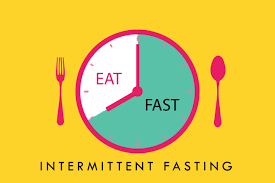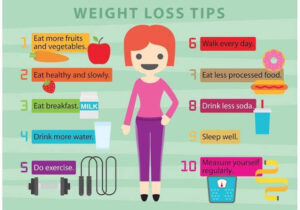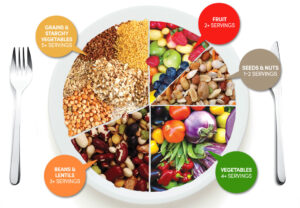
Intermittent fasting (IF) has become a major trend in the world of health, wellness, and weight loss. Unlike most diets, which focus on what you eat, intermittent fasting focuses on when you eat. It’s not about cutting out all your favorite foods, but rather structuring your meals around time windows for eating and fasting.
In this article, you’ll learn everything you need to know as a beginner, including the benefits of intermittent fasting, its popular methods, and simple tips to help you succeed.
What Is Intermittent Fasting?
Intermittent fasting is an eating pattern that cycles between periods of fasting (not eating) and eating. Rather than telling you to avoid certain food groups, IF encourages time-restricted eating, which can naturally lead to fewer calories being consumed and give your body time to heal and regulate itself.
Intermittent fasting isn’t about starvation; it’s about training your body to use energy more efficiently. For centuries, humans have followed natural fasting patterns due to food scarcity or cultural reasons, so IF is less about deprivation and more about aligning with a more natural way of eating.
Health Benefits of Intermittent Fasting
1. Aids Weight Loss
Intermittent fasting helps you consume fewer calories by reducing your eating window, which naturally leads to weight loss. It also promotes fat loss by optimizing hormone function:
- During fasting, your insulin levels drop, which promotes fat burning.
- The increase in human growth hormone (HGH) enhances fat loss and muscle retention.
- Your body switches to burning stored fat instead of glucose for energy, a state called ketosis.
2. Improves Insulin Sensitivity
Intermittent fasting can significantly lower blood sugar levels and improve insulin sensitivity, which is beneficial for individuals at risk of type 2 diabetes.
3. Boosts Cellular Repair and Longevity
During fasting, the body triggers a process called autophagy, where old, damaged cells are cleared out and repaired. This reduces inflammation, slows down aging, and may protect against diseases like Alzheimer’s.
4. Supports Heart Health
Intermittent fasting improves key factors linked to heart health:
- Reduces blood pressure and cholesterol levels.
- Lowers triglycerides (fats in the blood).
- Controls blood sugar to prevent diabetes.
5. Enhances Brain Function
Fasting boosts the production of brain-derived neurotrophic factor (BDNF), a hormone that protects the brain and enhances cognitive function. It may help reduce the risk of neurodegenerative diseases like Alzheimer’s and Parkinson’s.
6. Increases Energy and Focus
Many people report having improved mental clarity and focus while fasting because of lower insulin spikes and better brain activity.

Popular Methods of Intermittent Fasting
There are several popular types of intermittent fasting, so you can choose the one that best fits your lifestyle:
1. 16/8 Method (The Leangains Protocol)
- You fast for 16 hours and eat all your meals within an 8-hour window.
- For example, you could eat between 12 PM and 8 PM, then fast overnight until the next day’s lunch.
Why It Works: It’s simple, easy to follow, and feels close to a normal eating pattern.
2. The 5:2 Diet
- You eat normally for 5 days of the week.
- On the remaining 2 days, you limit calories to 500–600.
Why It Works: It allows flexibility—you only restrict calories twice per week while eating normally on other days.
3. Eat-Stop-Eat
- Involves fasting for a full 24 hours once or twice a week.
- For example, if you finish dinner at 7 PM, you don’t eat again until 7 PM the next day.
Why It Works: It gives your body extended time to burn fat.
4. Alternate-Day Fasting
- Alternate between days of normal eating and fasting (or eating very few calories, like 500 kcal).
Why It Works: Great for those who can handle regular fasting periods without feeling deprived.
5. The Warrior Diet
- Focuses on eating one large meal at night.
- You fast for 20 hours, during which you can eat small portions of fruits or vegetables, then consume your big meal within a 4-hour window.
Why It Works: It mimics ancient eating patterns and simplifies meal planning.
How to Start Intermittent Fasting as a Beginner
Starting intermittent fasting doesn’t have to be complicated. Follow these steps to ease into it:
Step 1: Choose Your Fasting Window
- Begin with a simple plan, like the 16/8 method, where you fast overnight and skip breakfast.
- Your eating window could be 12 PM to 8 PM, but adjust as needed.
Step 2: Hydrate
During fasting periods, drink plenty of water, black coffee, herbal teas, or plain green tea. Staying hydrated reduces hunger and keeps you energized.
Step 3: Eat Nutrient-Dense Foods
When you break your fast, prioritize whole, nutrient-dense foods:
- Lean proteins (chicken, fish, eggs).
- Whole grains (brown rice, quinoa, oats).
- Healthy fats (avocados, nuts, olive oil).
- Fiber-rich vegetables and fruits.
Step 4: Don’t Overeat During Your Window
Avoid the temptation to binge. Overeating cancels out the benefits of fasting and may lead to weight gain.
Common Challenges and How to Overcome Them
1. Hunger During Fasting
- Drink water, green tea, or black coffee to suppress hunger.
- It gets easier as your body adjusts over time.
2. Fatigue or Low Energy
- Ensure you’re getting enough calories and nutrients during eating windows.
- Prioritize sleep to give your body time to recover.
3. Social Gatherings
- Plan your fasting window around social meals. If you must eat, resume your schedule the next day.
Who Should Avoid Intermittent Fasting?
While IF has numerous benefits, it’s not for everyone. Consult your doctor if:
- You’re pregnant or breastfeeding.
- You have a history of eating disorders.
- You’re diabetic or taking medications that affect blood sugar.
- You experience extreme fatigue, dizziness, or weakness while fasting.
Sample 7-Day Intermittent Fasting Plan (16/8 Method)
Here’s a simple meal plan to get you started:
Day 1–7 (Eating Window: 12 PM – 8 PM)
- 12 PM (Break Fast): Scrambled eggs with spinach and avocado toast.
- 3 PM (Snack): A handful of almonds with berries.
- 7 PM (Dinner): Grilled salmon with sweet potatoes and steamed broccoli.
- Hydration: Drink water, black coffee, or herbal teas throughout the fasting period.
Tip: Adjust the eating window to suit your routine.
Final Thoughts
Intermittent fasting is a flexible and natural way to support weight loss, improve metabolism, and boost overall health. By focusing on when you eat instead of what you eat, IF simplifies meal planning and provides tangible results for weight management, energy, and longevity.
Start small with a fasting method like the 16/8 plan and give your body time to adjust. Pair IF with nutrient-rich foods, hydration, and sleep to unlock its full benefits.
Ready to take control of your health? Give intermittent fasting a try—it might just change your life!




